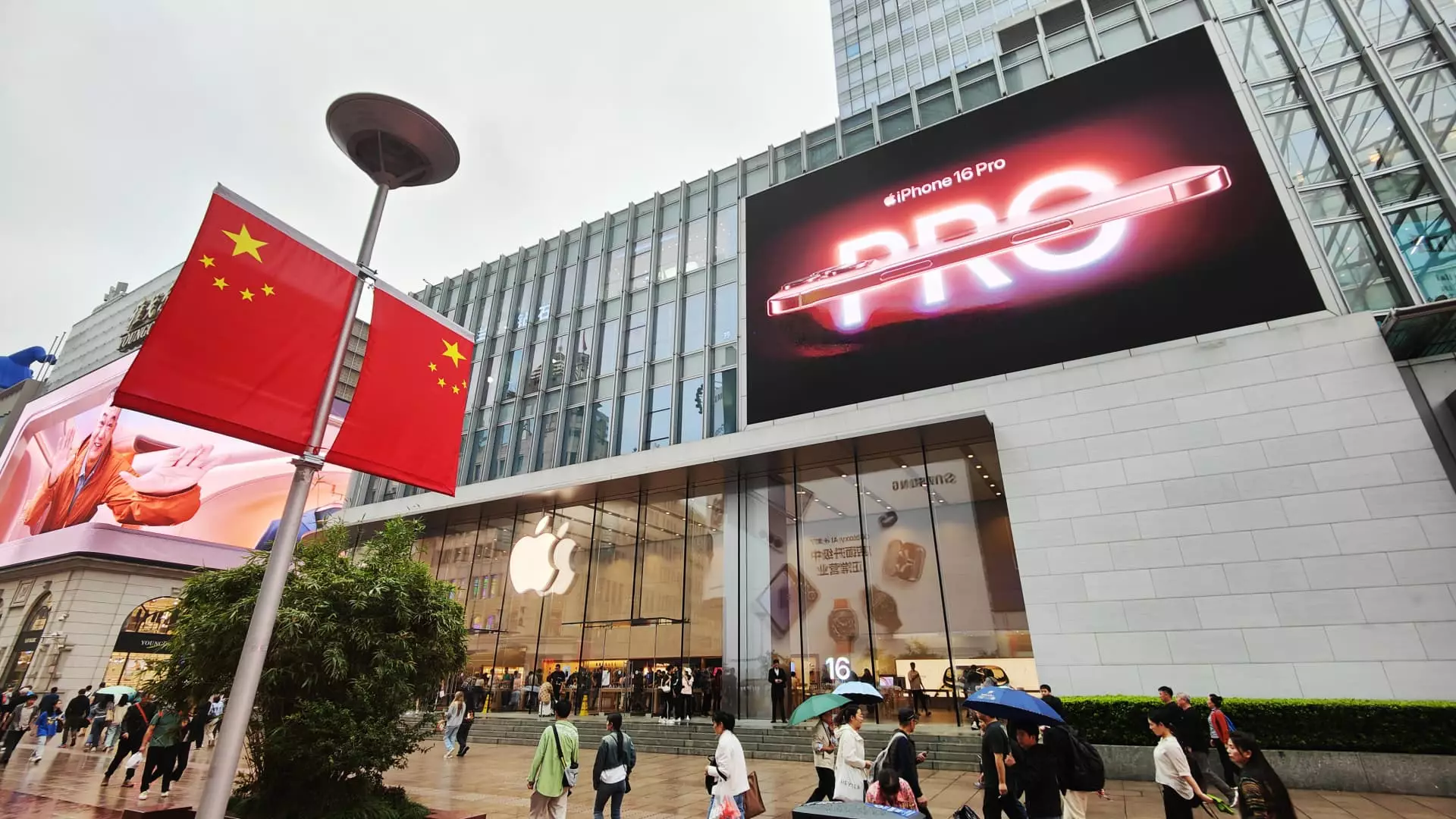In recent months, the foreign smartphone market in China has encountered significant challenges, with November showcasing a remarkable decline in sales figures. This trend is particularly detrimental for Apple, the leading international smartphone manufacturer in the region. An analysis based on data provided by the China Academy of Information and Communications Technology (CAICT) indicates that foreign mobile phone shipments dropped to 3.04 million units in November—this marks a staggering 47.4% decline compared to November 2022, and a dramatic 51% decrease since October of last year. These figures highlight the troubling environment for foreign brands as they grapple with local competitors and changing consumer preferences.
The steadfast grip that Apple has maintained on the Chinese smartphone market is now increasingly under threat. Despite being the preeminent foreign vendor, Apple has found itself under siege as domestic brands reclaim market share. Huawei is at the forefront of this resurgence. Following a period of stagnation due to U.S. sanctions that hampered its operations and sales, Huawei has revitalized its product lineup and successfully introduced high-end models that have resonated well with Chinese consumers. Reports indicate that Huawei’s growth in the latter part of 2023 far surpassed Apple’s, signaling a shift in the competitive balance.
Apple’s ongoing endeavors to reclaim its foothold in China heavily pivot on the introduction of innovative features, particularly through its new iPhone 16 series, which launched in September. Apple is banking on the hype surrounding its proprietary Apple Intelligence software, which promises a suite of artificial intelligence enhancements. However, the absence of this software in the Chinese market, primarily due to stringent local regulations governing AI technology, presents a formidable barrier. In contrast, several domestic competitors have already rolled out AI features that enrich their devices, effectively capturing consumer interest at a pace that Apple has struggled to match.
Recognizing the urgency of the situation, Apple is taking proactive steps to rekindle consumer interest in its products. The company’s CEO, Tim Cook, has made several trips to China, highlighting the importance of nurturing strategic partnerships with local firms to enhance its service offerings. Additionally, in a push to boost sales of the iPhone 16, Apple has announced planned discounts to coincide with the Lunar New Year holiday promotion, demonstrating a tactical response to the declining sales trajectory.
The current atmosphere surrounding foreign smartphone sales in China reveals both immediate challenges and longer-term implications for companies like Apple. With an increasingly competitive landscape dominated by agile domestic brands, Apple must not only navigate regulatory hurdles but also respond adeptly to the rapidly evolving preferences of Chinese consumers. As the battle for market share intensifies, Apple’s ability to adapt and innovate will be critical to its success in reclaiming its position in this vital market. The coming months will be pivotal in determining whether Apple can reverse its fortunes or if domestic manufacturers will continue to erode its dominance.

